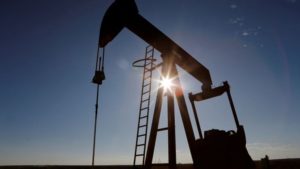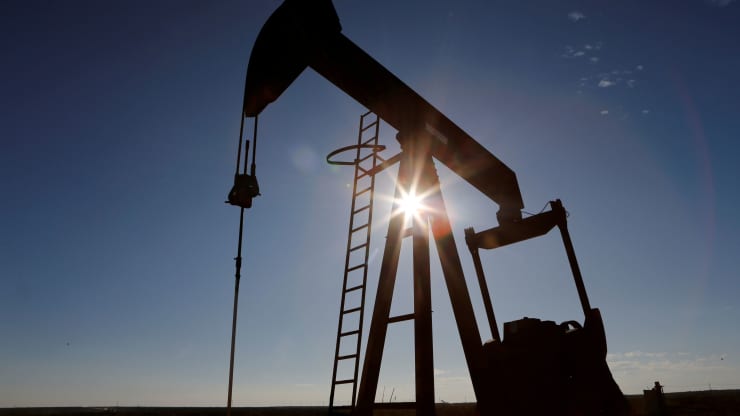 Occidental CEO Vicki Hollub said Thursday that she doesn’t envision U.S. oil production returning to pre-pandemic highs.
Occidental CEO Vicki Hollub said Thursday that she doesn’t envision U.S. oil production returning to pre-pandemic highs.- “I do believe that most companies have committed to value growth, rather than production growth,” she said during a CNBC Evolve conversation with Brian Sullivan.
- West Texas International crude futures, the U.S. oil benchmark, jumped more than 4% on Thursday to trade as high as $64.86 per barrel, a level last seen in January 2020.
Occidental CEO Vicki Hollub said Thursday that she doesn’t envision U.S. oil production returning to pre-pandemic highs.
“I do believe that most companies have committed to value growth, rather than production growth,” she said during a CNBC Evolve conversation with Brian Sullivan. “And so I do believe that that’s going to be part of the reason that oil production in the United States does not get back to 13 million barrels a day.”
She believes companies will focus on optimizing current operations and facilities, rather than seeking growth at all costs. But she added that oil demand is recovering faster-than-expected, driven primarily by China, India and the United States.
“The recovery looks more V-shaped than we had originally thought it would be,” she said. The company’s initial forecast had demand returning to pre-pandemic levels by the middle of 2022. Now, Hollub believes demand will return by the end of this year or the first few months of 2022.
“I do believe we’re headed for a much healthier supply and demand environment” she said.
Her comments came after West Texas International crude futures, the U.S. oil benchmark, jumped more than 4% on Thursday to trade as high as $64.86 per barrel, a level last seen in January 2020.
She expects crude prices will be “a little better than where they are today” if her demand forecast for next year is correct, but she does not expect prices to go up “excessively” other than the short spikes that can occur from time to time.
OPEC and its oil-producing allies on Thursday decided to keep production levels largely steady into April, with Saudi Arabia also announcing that it would extend its voluntary one million barrels per day production cut.
The group first implemented unprecedented supply cuts in 2020 in an effort to provide a floor as oil prices tumbled to historic lows.
The energy sector has rebounded this year and is the top-performing S&P group by a long shot, but stock prices continue to hover well below prior highs as the focus on ESG investing, among other things, weighs.
Hollub reiterated Thursday that the company is working toward net zero carbon oil production through its heavy investments into carbon capture.
“We need to change the narrative .. it’s not fossil fuels that’s really the problem, it’s the emissions,” she said. “What we have to do is we need to get everybody focused on instead of trying to kill fossil fuels, we need to get everybody’s attention on how do we use oil and gas reservoirs to our advantage.”
“How do we use that to lower emissions all around the world, and that’s exactly our goal. Our goal is to be the company that provides the solution,” she said.
Shares of Occidental have surged more than 70% this year. The stock is still negative over the last year, however.

